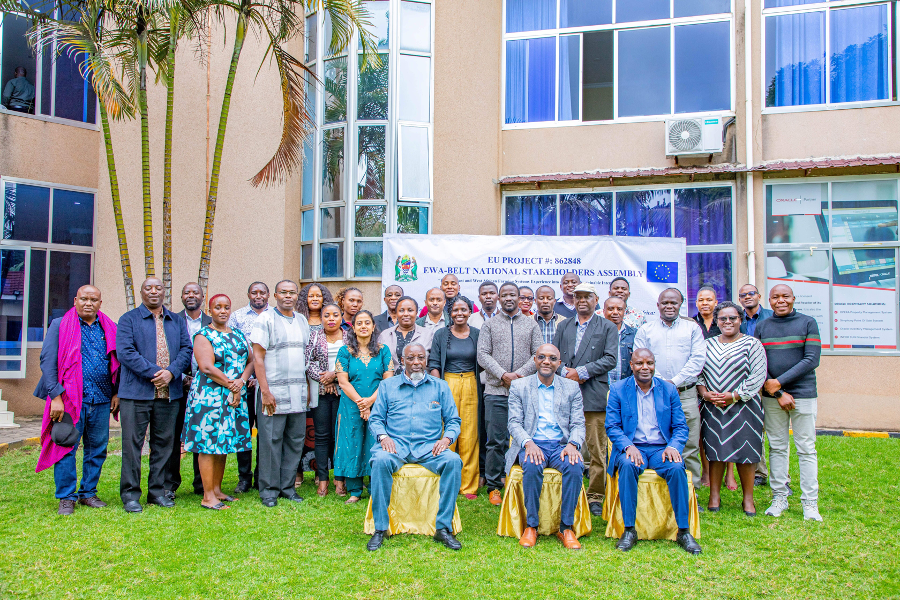A Successful Agroforestry Initiative: Combating Desertification through Collaboration
- OCCAM - Observatory on Digital Communication

- Jan 9, 2025
- 2 min read
On the occasion of the EWA-BELT General Assembly, held on September 24th, 2024, at Spazio Cairoli in Milan, Giuseppe Enne, Chair of EWA-BELT Scientific Advisory Board, shared his previous experience about an agroforestry initiative to combat desertification and pastoralism.

During the EWA-BELT General Assembly, Professor Enne, shared a significant experience that directly aligned with the focus on agroforestry and combating desertification. This experience stemmed from his leadership of a prominent project, which closely remarks the objectives of the ongoing initiatives in agroforestry and pastoralism.
Professor Enne, emphasized that the brief presentation, aimed to illustrate the valuable insights gained from a project conducted in Morocco nearly two decades ago. The region in question, traditionally an agro-pastoral area, had suffered severe degradation due to overgrazing, leading to decades of desertification.
Professor Enne and his team, signed crucial agreements with local authorities and farmer representatives initiating a collaborative effort to restore the land. He stressed the importance of involving local communities in such projects, as success depends on their active participation.
In particular, the engagement of local farmers, especially women, played a key role in the project’s success and outcomes, especially for the central position that women held in ensuring the sustainability of agricultural practices, particularly in Africa where they are often the pillar of rural livelihoods.
Over the course of three years, essential tools such as tractors and other farming equipment were provided, alongside the planting of 700,000 plants per hectare annually. The results were impressive, with the land showing significant signs of recovery, and the area evolving into a model of agroforestry success.
An unexpected but noteworthy outcome of the initiative was its positive environmental impact. The shade generated by the plants, combined with soil moisture retention and improved fertility, created a microclimate conducive to plant growth. Additionally, the manure from grazing animals contributed to soil fertilization, further enhancing the regenerative cycle. This approach not only involved Professor Enne and his team but also the broader community, including women’s cooperatives, and was strongly supported by local authorities, ensuring the project’s success and sustainability.
What began as a 2000 hectare experimental plot has now expanded to thousands of hectares being managed and restored, approximately 30km north of Marrakech.
Professor Enne presented this experience as a quintessential success story, demonstrating that with the collaboration of local communities, authorities and committed stakeholders it is possible to transform degraded landscapes into thriving ecosystems.
Follow us on social media and stay up to date!
EWA-BELT Project |
Website: www.ewabelt.eu Facebook: ewabelt.project Instagram: ewabelt_project X: ewabelt_project LinkedIn: showcase/ewa-belt YouTube: occam3039 Joint YouTube channel: @sfs35 |
For media inquiries, please contact:
OCCAM - Observatory on Digital Communication





Comments